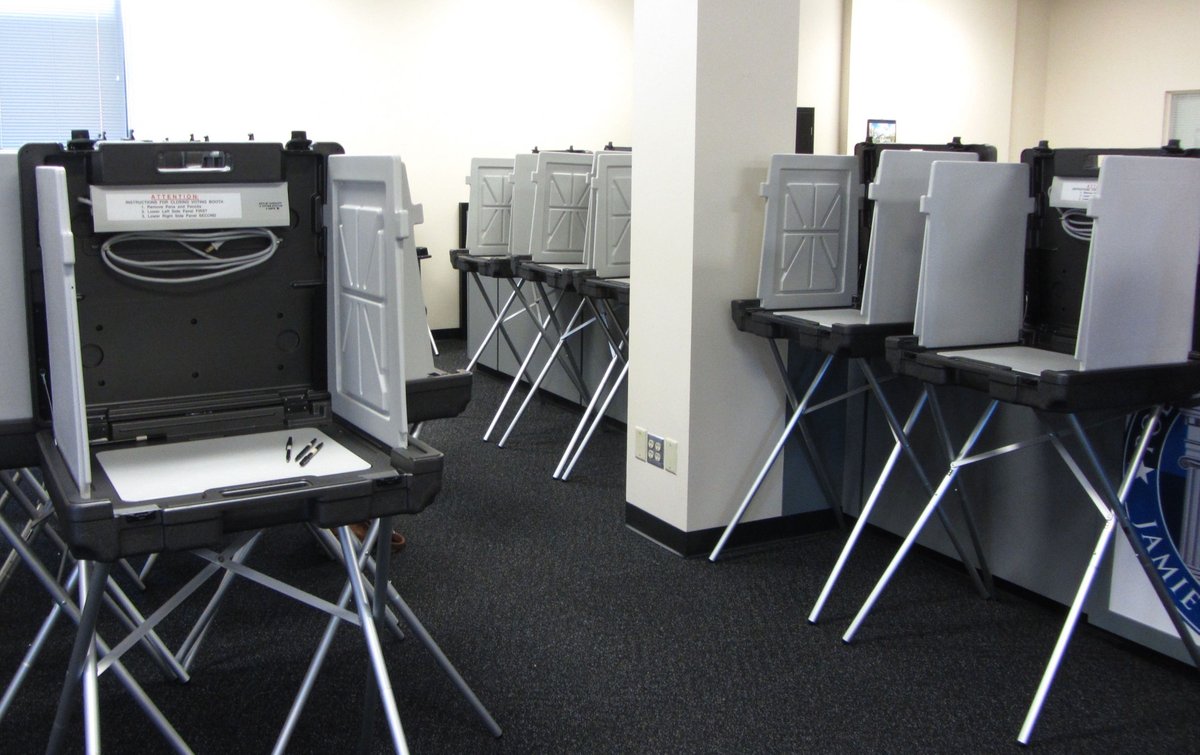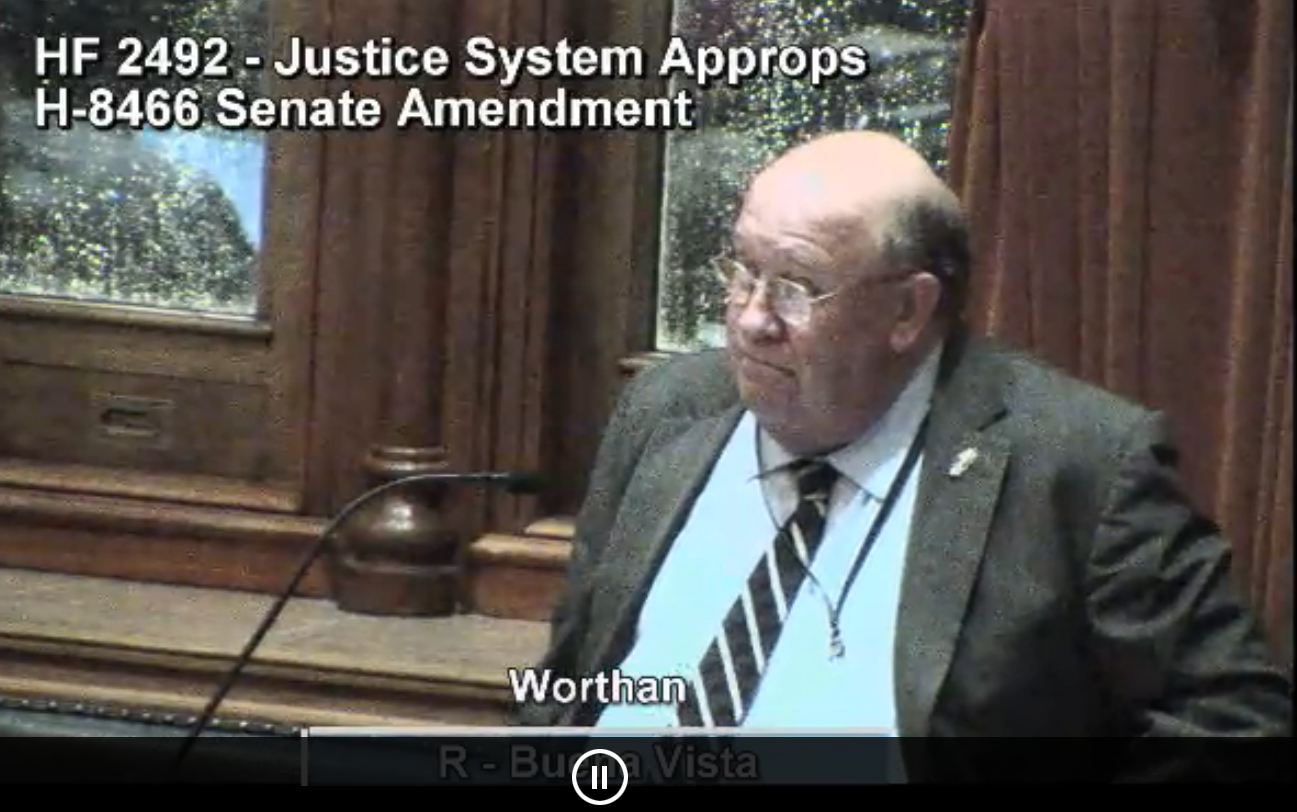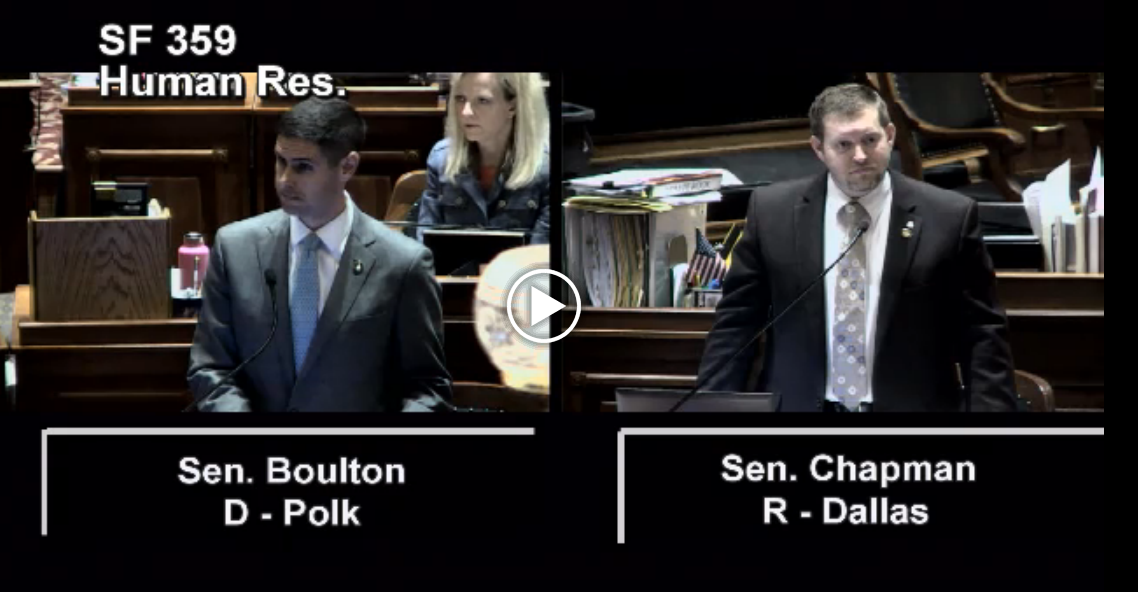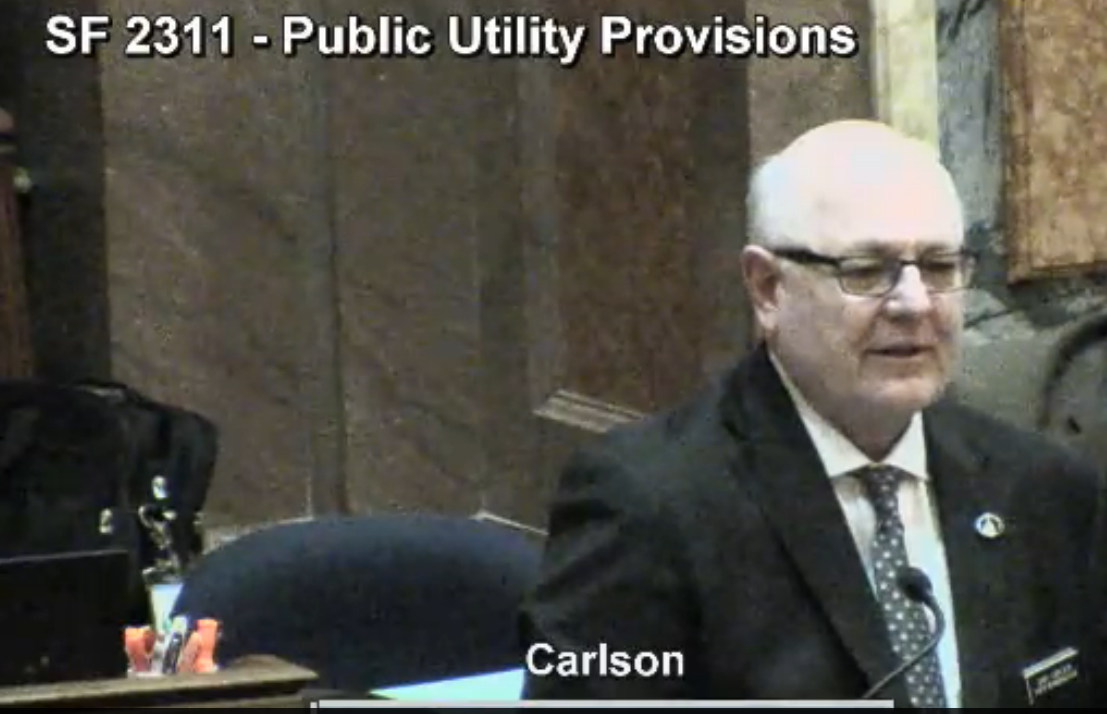Catching up on news overshadowed by the biggest Iowa politics story of the week: on May 23 a group of Iowa House Democrats dropped their legal challenge to Governor Kim Reynolds’ use of emergency funds without legislative approval last September. Reynolds transferred $13 million from the Iowa Economic Emergency Fund to cover a shortfall in the fiscal 2017 budget, despite a warning from State Treasurer Michael Fitzgerald that Iowa law did not permit that action.
State Representative Chris Hall, the ranking Democrat on the Iowa House Appropriations Committee, filed suit in January, charging that Reynolds and Department of Management Director David Roederer “conspired together to unlawfully appropriate and misuse state funds.” The lawsuit alleged that the governor acted unilaterally in order to avoid the political fallout from calling the legislature back for a special session. House Democrats Marti Anderson, Liz Bennett, Bruce Hunter, Jerry Kearns, Monica Kurth, and Amy Nielsen joined the legal action a few weeks later.
Republican legislators tacitly acknowledged that Reynolds broke the law. They added language to a bill cutting current-year spending that retroactively legalized the governor’s action and appropriated $13 million from the emergency fund to the general fund for fiscal year 2017. (See page 8 of Senate File 2117, which both chambers passed along party lines in March.)
“Our legal challenge held Governor Reynolds and Republicans accountable, and it did so without costing taxpayers a single dime,” Hall said in a news release enclosed in full below. “We have seen too many cover ups and not enough leadership from the Reynolds administration. This is a victory for taxpayers and ensures that our tax dollars will be spent according to the law.”
UPDATE: I should have mentioned that there would be little to gain by following through with this lawsuit. Once the legislature passed and Reynolds signed Senate File 2117, a court would almost certainly have dismissed the case as moot.
Continue Reading...

































